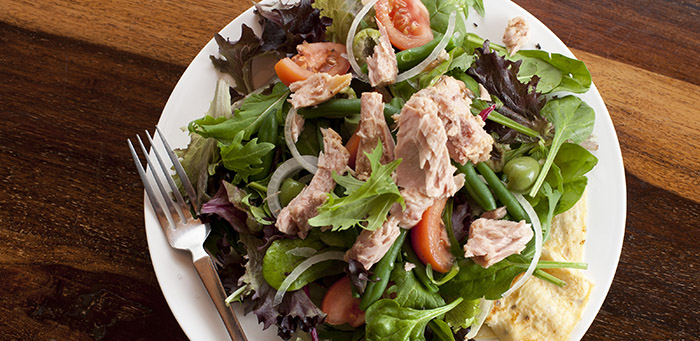Quick ‘N Easy: 10 Dinner Party Recipe Ideas

In need of quick and easy dinner party recipe ideas? Get inspired for your next dinner party menu with these ten tantalising dinner party snacks:

Do not belittle these petite triangles, for they pack a punch of flavour! Take a bite, and let the crisp shell of the samosa break apart to reveal a delicious filling of crumbly mashed potatoes, flavoured with a spicy kick of curry. There is only one thing that we can be sure of – your guests will not be able to stop at one!
We all love a savoury treat that can be whipped up in a snap! This delightful starter kills two birds with a stone – it will not fail to please both your seafood-fanatic and meat-loving guests.

When in doubt, stick to items that have been tried-and-tested. You cannot go wrong with dishing out a good' ol tuna salad!

Bite into a slice of this toasty bread, and let the aromatic flavours of the garlic, butter and herbs explore in your mouth. It is called a "tear-and-share" garlic bread, but when something tastes so good, we ain't sure if anyone is gonna be sharing this!
If you are firing up a barbecue for an outdoor dinner, be sure to stock up on a handful of corn ears. For a tasty snack, slap on some butter after grilling the corn. To make an irresistible Mexican kick, add a dash of chili powder, cheese and lime juice.

Who doesn't love potatoes? Invite your guests to sink their teeth into these chunky wedges, spiced with an addictive hint of paprika, and watch them reach out for more…and much more.

What is light, healthy and yummy? Our answer – vegetarian summer rolls! Mhmm…
Grilled vegetables, seasoned with heady spices and pesto rae heaped upon a toasted country bread. This is one snack that your vegetarian guests will not be able to resist!
Desserts

Buttery, crumbly, and oh-so-yummy! This is a treat that definitely earns a top spot on our list of easy peasy dinner party food ideas.

No one in their right mind would say no to a slice of Nutella Pie. We are willing to bet our lives on this – how can anyone possibly resist is rich chocolate flavours, decadent hint of hazelnut aroma and addictively crunchy biscuit base?
Hosting a dinner party? Check out our articles on Top 10 Dinner Party Hacks and 5 Dinner Party Tips!
Images: Stockarch, Bonappetit, GrandbabyCakes, Banhmigirls, Baking Through Msbh, Amandeleine, Atelier Christine
[icegram campaigns=”612″]






